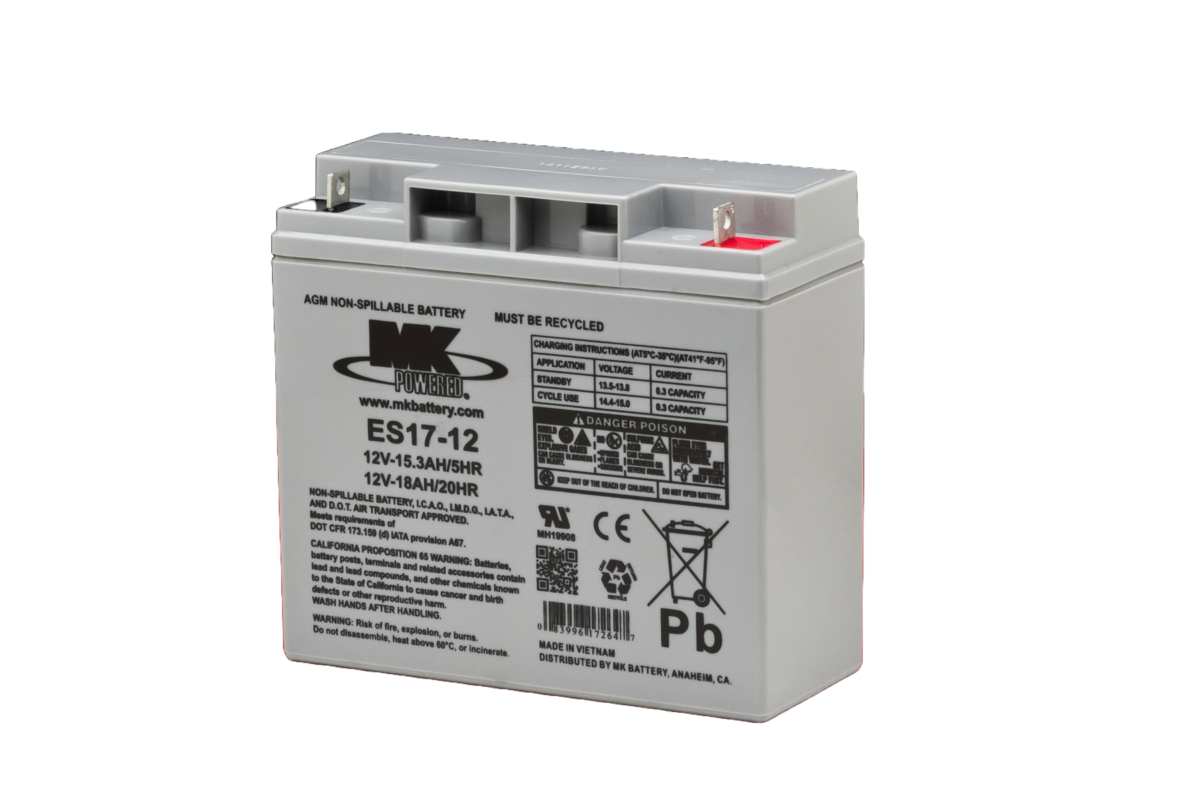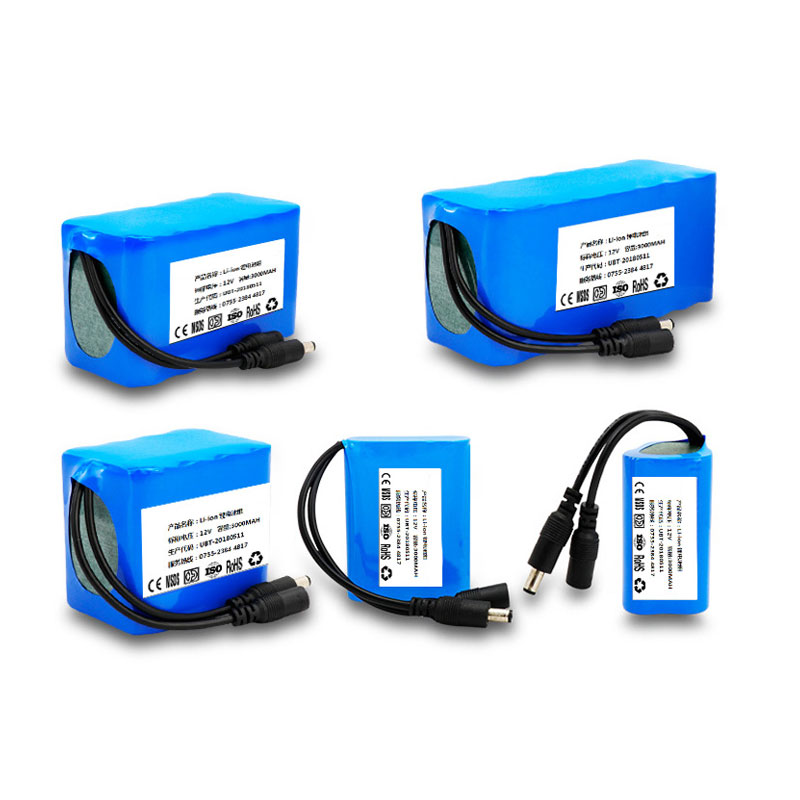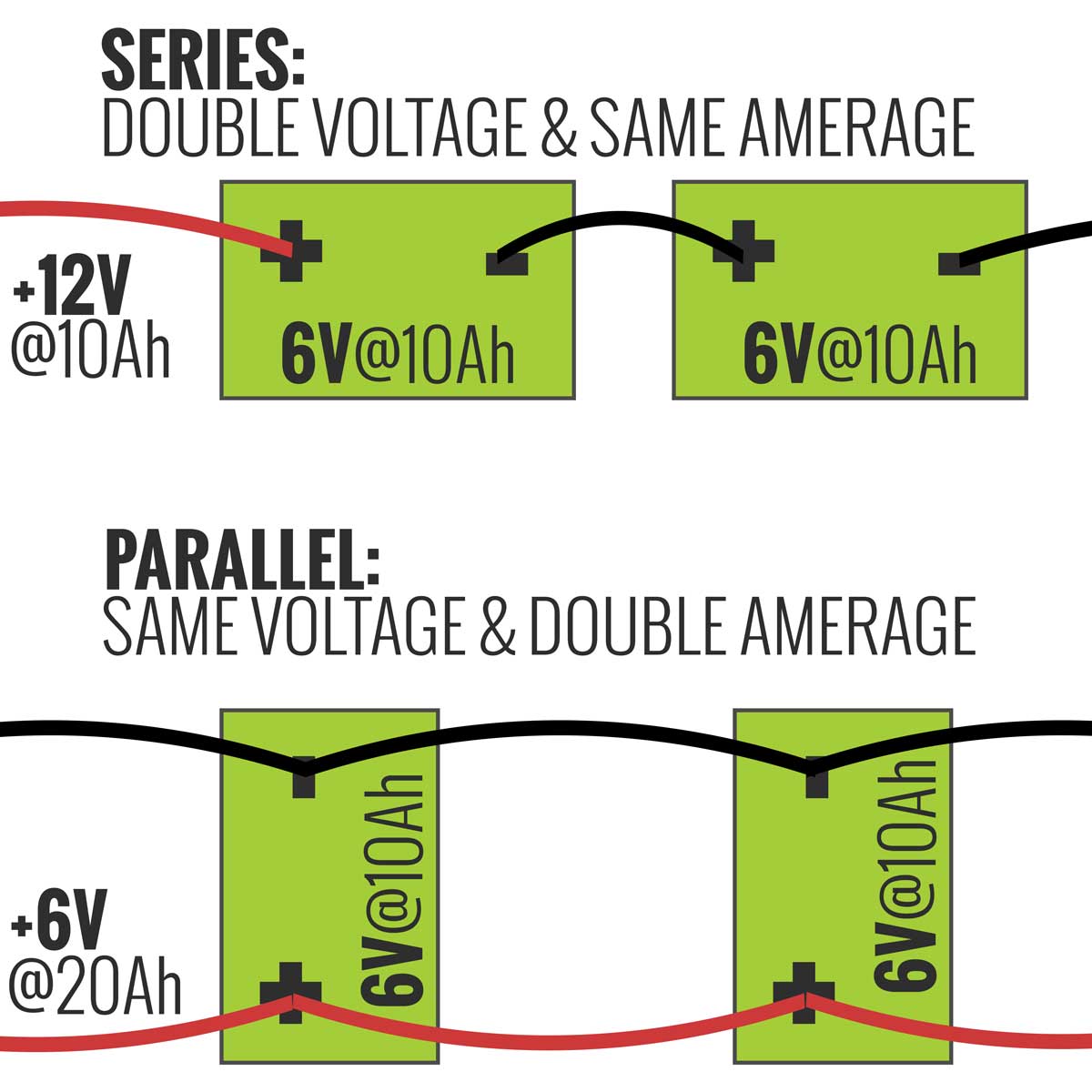Breathtaking Info About Are 12V And 12.8 V Batteries The Same

Shop 12V 18Ah Batteries For Mobility Scooters & Power Wheelchairs
Decoding Battery Voltages
1. Understanding the Basics
So, you're staring at two batteries, one boldly proclaiming "12V" and the other whispering "12.8V," and you're wondering if they're essentially twins or distant cousins. It's a valid question! The world of batteries can feel like navigating a maze filled with confusing numbers and technical jargon. Let's break it down in a way that's easy to understand, even if you're not an electrical engineer (and let's be honest, most of us aren't!).
Think of voltage like water pressure in a pipe. A higher voltage means more electrical "oomph" pushing the current through a circuit. Now, both 12V and 12.8V batteries are considered "12-volt" batteries, but that slight difference in voltage actually signifies something important about their chemistry and intended use. It's like saying two people are "tall," but one is 6'0" and the other is 6'4". Both are tall, but there's a measurable difference.
The key difference usually lies in the battery technology. A 12V battery is often a lead-acid battery, while a 12.8V battery is commonly a lithium iron phosphate (LiFePO4) battery. Lead-acid batteries have been around for ages, are generally more affordable, and are often found in cars. LiFePO4 batteries are newer, lighter, have a longer lifespan, and are becoming increasingly popular for applications like solar power and RVs. They're kind of like the cool, energy-efficient kids on the block.
That extra 0.8 volts isn't just for show. It reflects the different chemical properties and discharge characteristics of LiFePO4 batteries. They maintain a more stable voltage throughout their discharge cycle compared to lead-acid batteries, which means you get consistent power delivery right up until they're nearly empty. Imagine your phone not suddenly dimming when the battery hits 20% — that's the kind of consistency we're talking about.

How To Wire 12V Batteries In Series & Parallel (w/ Photos!) Footprint
Digging Deeper
2. Lead-Acid vs. LiFePO4
Let's get a little more technical, but still keep it light. Lead-acid batteries, the old faithfuls, are known for their ability to deliver a surge of power, which is why they're great for starting car engines. However, they don't like being deeply discharged (i.e., completely drained). Doing so can shorten their lifespan considerably. Imagine repeatedly running a marathon without proper training — it's going to take a toll!
LiFePO4 batteries, on the other hand, are much more resilient when it comes to deep discharges. They can handle being drained down to near zero without significantly impacting their longevity. This makes them ideal for applications where you need consistent power over a long period, like powering a solar setup or running appliances in an RV. Plus, they're significantly lighter than lead-acid batteries, which is a huge bonus if you're trying to minimize weight.
Another key difference is the charging process. Lead-acid batteries require a specific charging profile to ensure they're charged properly and to prevent damage. Overcharging them can lead to gassing and corrosion, which is definitely not a good thing. LiFePO4 batteries are a bit more forgiving and can be charged with a simpler charging profile. However, it's still important to use a charger that's designed for LiFePO4 batteries to maximize their lifespan and performance.
Think of it this way: lead-acid batteries are like a classic car — reliable but require regular maintenance and careful handling. LiFePO4 batteries are like a modern electric car — efficient, long-lasting, and relatively low-maintenance. Both have their place, but it's important to understand their differences to choose the right battery for your needs.

Interchangeability
3. The Compatibility Question
Now, the burning question: can you simply swap a 12V lead-acid battery with a 12.8V LiFePO4 battery? The answer, as with many things in life, is "it depends." Generally speaking, directly replacing a lead-acid battery with a LiFePO4 battery without considering the charging system is not recommended. You might get away with it temporarily, but you could end up damaging the LiFePO4 battery or not fully charging it, which defeats the purpose of upgrading in the first place.
The charging system is the critical factor here. Lead-acid battery chargers are designed to provide a specific voltage and current profile that's optimized for lead-acid chemistry. They often have different charging stages, like bulk, absorption, and float. LiFePO4 batteries require a different charging profile, typically with a constant current/constant voltage (CC/CV) charging strategy. Using a lead-acid charger on a LiFePO4 battery can lead to overcharging or undercharging, both of which can shorten the battery's lifespan.
Furthermore, some older systems might not be compatible with the slightly higher voltage of a 12.8V LiFePO4 battery. While the difference of 0.8 volts might seem insignificant, it could potentially damage sensitive electronic components in some cases. It's always a good idea to check the specifications of your equipment and consult with a qualified technician before making any battery swaps.
If you're considering upgrading to LiFePO4 batteries, it's best to invest in a charger that's specifically designed for them. These chargers will provide the optimal charging profile to maximize the battery's lifespan and performance. Alternatively, some smart chargers have selectable charging profiles for different battery chemistries, allowing you to switch between lead-acid and LiFePO4 batteries as needed. This gives you the flexibility to use different battery types without having to worry about damaging them.

Applications
4. Choosing the Right Battery for the Job
So, where does each type of battery really shine? Lead-acid batteries are still a popular choice for starting car engines, powering trolling motors, and providing backup power for uninterruptible power supplies (UPS). They're generally more affordable than LiFePO4 batteries, making them a good option for applications where cost is a major concern and deep cycling isn't required.
LiFePO4 batteries, on the other hand, are increasingly popular for applications that demand long lifespan, deep cycling, and lightweight. They're commonly used in solar power systems, RVs, electric vehicles, and portable power stations. Their ability to handle deep discharges without significant degradation makes them ideal for off-grid living and other demanding applications.
Consider the specific requirements of your application when choosing between a 12V lead-acid battery and a 12.8V LiFePO4 battery. If you need a battery for starting a car, a lead-acid battery is likely the most cost-effective option. However, if you need a battery for powering a solar system or an RV, a LiFePO4 battery might be a better investment in the long run, due to its longer lifespan and better performance.
Ultimately, the best battery for you depends on your specific needs and budget. Take the time to research the different types of batteries and their characteristics, and consult with a qualified technician if you're unsure which battery is the right choice for your application. It's like choosing the right tool for the job — using the wrong tool can lead to frustration and even damage.

Connecting Three 12v Batteries In Series
Cost Considerations
5. Weighing the Pros and Cons
Let's talk about the elephant in the room: cost. LiFePO4 batteries typically have a higher upfront cost compared to lead-acid batteries. However, it's important to consider the total cost of ownership over the lifespan of the battery. LiFePO4 batteries often last significantly longer than lead-acid batteries, potentially saving you money in the long run by reducing the need for frequent replacements.
In addition to their longer lifespan, LiFePO4 batteries also offer other advantages that can offset their higher upfront cost. They're lighter, more energy-efficient, and require less maintenance than lead-acid batteries. These factors can contribute to significant cost savings over the long term, especially in applications where weight and efficiency are important considerations.
For example, if you're powering an RV with solar panels, the weight savings of LiFePO4 batteries can improve fuel efficiency and reduce wear and tear on your vehicle. Their higher energy density also means you can store more power in a smaller space, which can be a significant advantage in space-constrained RVs.
When evaluating the cost of a battery, consider not only the initial purchase price but also the expected lifespan, maintenance requirements, energy efficiency, and any potential savings related to weight or space. By taking a holistic view of the total cost of ownership, you can make a more informed decision about whether a 12.8V LiFePO4 battery is worth the upgrade compared to a 12V lead-acid battery. Think of it like buying a more expensive appliance that uses less electricity — the upfront cost might be higher, but you'll save money on your energy bills over time.
